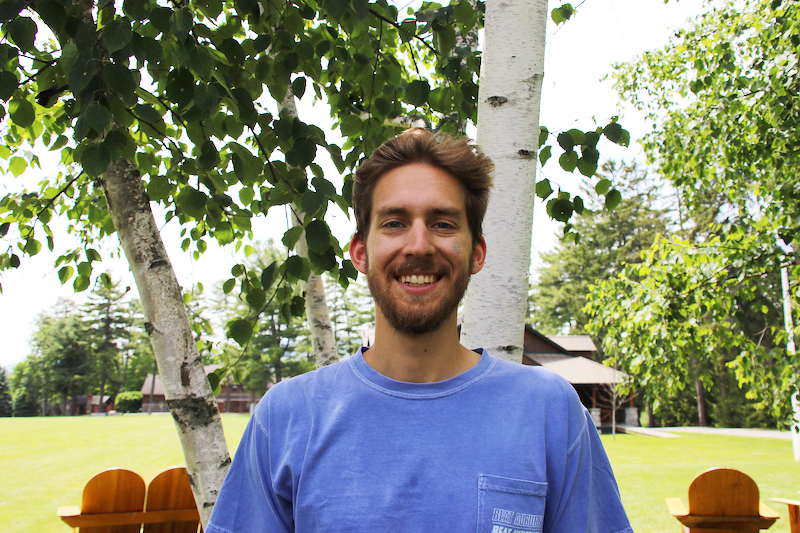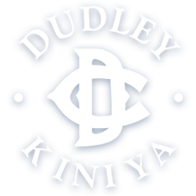Open Letter to Camp Dudley – By #19136 Ian Kotz

Open Letter To Camp Dudley Disclaimer: I am a straight white male who has spent years learning about and reckoning with his own privilege. I have benefited from the institutions of society that make my life easier and have lifted me up while putting others down. I have never struggled to get a job or a loan. I have never had to fear for my life when leaving my house. I have never had to adjust where I go, the way that I talk, the clothes that I wear, or the things that I say in order to fit into the small margin of what our society considers “normal.” I am privileged to know and understand my cultural history and where I come from without the erasure of cultural and family history due to centuries of enslavement and genocide. I will not pretend to know everything or have all the answers. However, I am passionate about servant leadership and social justice, and I believe we as human beings have a duty to take care of one another, uplift our brothers and sisters, and work tirelessly to make the world a better place for those who come after us.
To Whom it May Concern,
We need to do more. That is no longer an abstract idea or discussion topic, it is a reality. Speaking out publicly and showing solidarity is a great start, but it is time that we turn our words into action. At Camp we preach and do our best to practice our motto, The Other Fellow First, however, how much are we doing outside of Westport and Colchester to bring that to the world? I understand that as a mere staff member I am not privy to the goings on of board meetings and higher level discussion, and I am sure there is plenty happening of which I am unaware. However, we have reached a point in our history as a national community where invisible discussions are not enough. We must begin to actively have these discussions, out in the open with our entire camp community. We must include everyone in the Dudley/Kiniya network so that the discussion is not limited to those in power, and our community at large can be educated and activated for social justice. If we really intend to live our lives by our motto it is time that we engage publicly in social justice reform.
As the head of the service program at Dudley my goal is to teach the campers I have the opportunity to work with about servant leadership and social justice. It is important that we show our youth the inequalities, disenfranchisement, and repression that take place inside and outside of our own communities, while simultaneously empowering them to act on that new knowledge. While at camp I have been privileged to take the boys out into the communities that immediately surround us and I have seen how passionate and understanding they are once given the opportunity. We are fortunate to be in a place of privilege where we can explore ideas of economic inequality and the ever growing wealth gap in our country from the outside looking in. However, there is a far more insidious evil that permeates every fabric of our society. Racism is ingrained in every American institution, and is arguably the premise under which this country was founded. The system is not “broken,” it is unfortunately doing exactly what was built to do; dehumanize, disenfranchise, and criminalize black people and people of color at large. In a nation where inequality is institutionalized and runs rampant we must educate our youth so that they can do better than us. However, that process begins with us. It is imperative that we show our youth that they can make a real difference in the world. It is saddening that we continually have to put the burden on our youth because we have failed to make the world a better place for them. However, if we all collectively work together to further educate our youth, and ourselves, on ideas of equality and egalitarianism, we can create a future where our black brothers and sisters do not have to fear for there lives on a daily basis due to a federal government that has historically treated them as less than human.
Unfortunately, while much of the attention being pointed towards these issues is novel, the underlying problems are not. We are fortunate to live in an age where information is instantaneously available in our own pockets at the touch of a button. Our ability to consume and spread information in the year 2020 is unparalleled compared to the rest of human history and it is an unbelievable power that can be wielded to create better world. With the power that we receive from our access to information we are left with the responsibility of disseminating that information to the people that need it the most. Black people, indigenous peoples, and people of color do not need to be bombarded with this information as, unfortunately, it is the reality that they already live with every day. As a result, we must focus on the people who are able to insulate themselves from, and therefore ignore the reality of racial inequality and injustice in the United States of America. All too often, white people are able to use their privilege to express their personal beliefs on issues, while not bearing any responsibility to follow through on their words, and ignore events and issues that they feel do not affect them directly. However, as long as we live in a country that is built on inequality, everyone is affected.
It is up to the oppressor to elicit change, not the oppressed. It is imperative that we reconcile with our positions of privilege and use it to effect the change that is necessary for a just and equal world. Camp Dudley has made efforts in the past to add diversity to our camps and to increase accessibility to our programs for young black men and women, and young people of color in general. However, the fact remains that the large majority of our campers on both sides of the lake come from affluent, wealthy, and white families. It is important to recognize that the white middle and upper classes have the most ability to shield and insulate themselves from oppression, while conversely having the most power, economically and politically, to do something about that oppression. The first step to making a difference is simply recognizing ones own privilege, and choosing to use that privilege to make change. It is important that we use the tools and resources we have as an organization to educate our community to understand their own privilege and mobilize them to make a difference in the world. For over a century Camp Dudley has created an enormous network which has allowed our organization to accrue massive fundraising power as well as a whole web of connections in the political sphere. More importantly, however, is the massive human connectivity that Dudley has created. Yearly we disseminate mass communications that reach people all across our nation, and it is time to use that enormous network for good, and to enact change for the future. Imagine the impact if we as an organization asked our generous families and donors to contribute to charities and organizations such as the Black Lives Matter Movement, the NAACP, or the ACLU. Imagine if every Dudley person talked to just one other person about social justice, the ripple effect would be enormous.
Given the current state of our nation, we have a reached a point of no return where we must act, and act now. We must galvanize our enormous community into the fight for social justice, or at least provide them with the tools and knowledge to move forward as better people. Knowledge and education are the most potent tools for enacting change. I believe as an organization we should be equipping our Dudley community with the knowledge and tools to become better people, uplift their own communities, and fight for social justice outside of our own personal spheres. There are multitudes of educational material that we can actively disseminate and make available to our community at large. The easiest part about this is that the information and materials necessary already exist and are readily available for those with internet access. We do not have to come up with original material or stress over saying the “right thing.” Instead we can lift up, project, and amplify the voices and the knowledge of Black people and people of color. There are books, videos, and other resources that directly address how to talk to children about race and privilege. There is access to countless videos, movies, speeches, articles, essays, papers, books, and websites that discuss and focus on race and Racism in the United States of America. If we as an organization decided to take stance to be anti-racist, rather than just not racist, the impacts would be immeasurable.
In conclusion, I understand that this is a tough conversation, but it is one that needs to be had. There are steps that can be taken to educate our community at large, regardless of what understanding they have already. We have the organizational power to turn deniers into believers, and sympathizers into activists. As the head of the Dudley service program I am happy to lead the charge and to assist in any way I can in beginning this process of activism. It is crucial, however, that we do everything we can to amplify the voices of black people and people of color who are already in our community, as well as those who are outside of it. We as an organization have made our position clear, now it is time to act. It is time for us to break out of our comfort zones and not just say The Other Fellow First, but actively live it. However uncomfortable it may be, it is time that we actively lift up the other fellow and fight for equality and social justice in the United States of America. We are only a summer camp, but through our community and our connections we are so much more than that. Throughout history there have been calls to action to help our fellow human beings, now is one of those times. I hope you have read this and understand it well. As always, this not the end of the discussion, but just the beginning.
Sincerely and from the depths of my soul,
Ian Joseph Henry Kotz
#19136
RELATED LINKS
